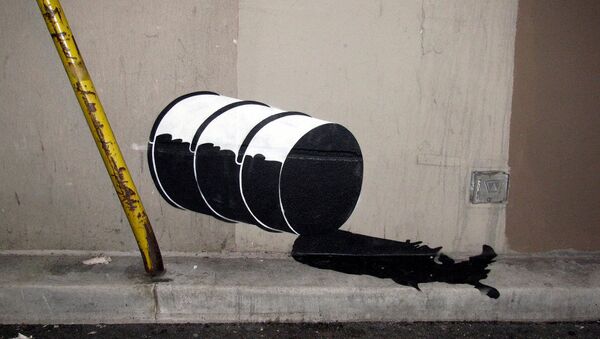MOSCOW (Sputnik) — On Sunday, major oil-producing countries failed to reach an agreement in the Qatari capital of Doha to maintain output at January levels. The news triggered a sharp drop of about 4 percent in oil prices.
"And when we are going to be [Organization of the Petroleum Exporting Countries (OPEC) meeting] in June <…> let's see what happens if the price is in the order of $25 to $30, how those discussions are going to be held. It's going to be completely different," del Pino said at the oil and gas conference in Moscow, commenting on the lack of agreement.
Global oil prices plunged from $115 to less than $30 per barrel between June 2014 and January 2016, hitting their lowest levels since 2003 amid an ongoing glut in global oil supply.
Venezuela is ready to work with both Saudi Arabia and Iran, as well as other oil producing states, following the failure to reach an agreement on oil production freezes, Oil Minister Eulogio del Pino told Sputnik on Tuesday.
"We are very open to talk to them <…> When I did my visit at the end of January to each countries [I was] trying to find some ways that everyone can talk," del Pino said at the oil and gas conference in Moscow, answering a question on whether Venezuela was ready to negotiate with Iran and Saudi Arabia.
The minister noted that the Doha meeting was very political, and some factors emerged at the last minute changing Saudi Arabia’s position on freezing oil output.
"We are going to continue working to reestablish the communication and the coordination at the OPEC and non-OPEC to equilibrate the prices," del Pino added.
In February, the energy ministers of Saudi Arabia, Qatar, Venezuela and Russia addressed the oil market situation in Doha and agreed to freeze oil production at January levels if other countries followed suit.
Relations between the Saudi kingdom and Iran have been strained since early January when Riyadh severed diplomatic ties with Tehran over an attack on its embassy and consulate following the execution of a prominent Shiite cleric.


